“Terrace House”: The Kinder, Gentler Japanese Alternative to Reality TV
"Terrace House" improves on the standard reality TV format by affording its cast privacy, freedom, and respect.
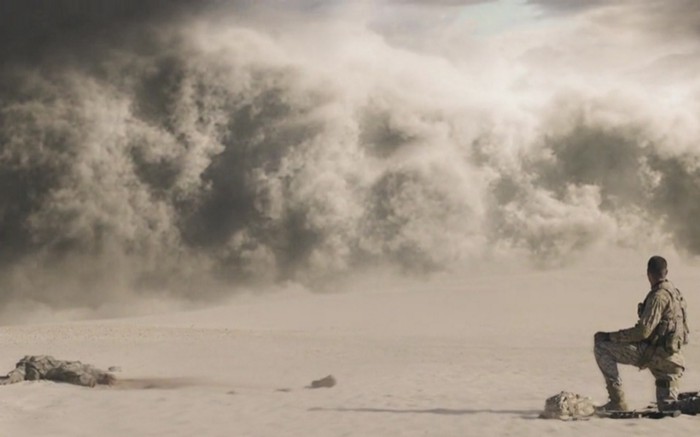
For Memorial Day this year, you might want to enjoy a change of pace from the usual collection of WW1, WW2, and Vietnam War movies in order to focus on more contemporary military conflicts. Mine (2016, Netflix), is definitely contemporary, but it’s far from Saving Private Ryan caliber.
The movie’s premise is quite engaging: after a failed mission in the North African desert, U.S. Marine Sgt. Mike Stevens (Armie Hammer) heads back to HQ. On the way through the barren desert, he feels himself step on a landmine. If he removes his foot, he’ll be blown to smithereens. There’s no one in sight and HQ tells him they can’t send a rescue mission for another 52 hours. The name of the game now is pure survival.
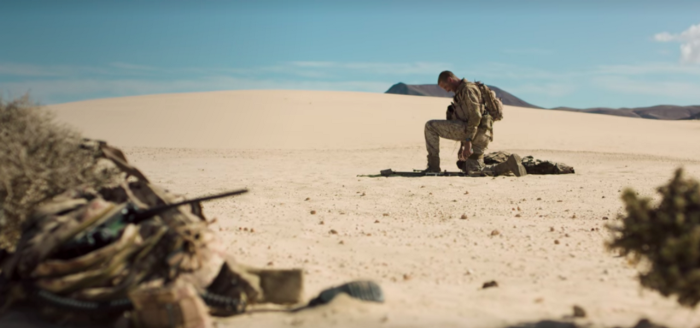
The first half of Stevens’ ordeal is full of trapped-in-the-desert tropes and white-knuckle suspense. He runs out of water, of course. He can’t get the radio working. There’s a sandstorm on the way. There are wild animals in the dark. If he moves his left foot even a teensy bit, he’ll blow up.
Sadly, things lose momentum in the second half of the film. Stevens is beset with the standard set of hallucinations. We learn that he is yet another case of a “dark and troubled past” complete with a drunk, abusive father. Naturally, this leads Stevens’ to grow into a brooding and sometimes violently angry adult who manages to mess up the best relationship of his life.
Essentially, Mine goes from adrenaline-fueled suspense thriller to navel-gazey character study rather quickly. There’s nothing wrong with the latter; unfortunately, Mine wastes time retreading old, tired cliches. The flashbacks are just too on the nose to be interesting, but at least we’re spared video diary narcissism.
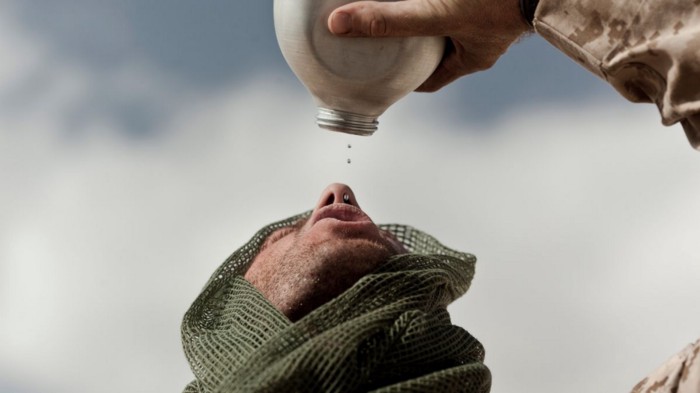
Mine doesn’t bother trying to subvert any diversity cliches, either. First, we have Stevens’ long-suffering girlfriend back home. Are they together? Are they broken up? Will he ever propose? Who knows, and who cares. Jenny (Annabelle Wallis) exists in the film to give Stevens something to focus on during his ordeal. In flashbacks, she calls him her “knight in shining armor,” which supposedly gives him a reason to want to be a better man and, out here in the desert for 52 hours, a reason to keep himself alive. Jenny is only given speaking lines in flashbacks, a video, and a few words over the radio, which get broken up.
The only other woman in the movie is Stevens’ nameless mother (Juliet Aubrey). Her entire role in the movie is to be abused by her husband and then die, years later, in a hospital.
The third and last ‘cluvie is another character who isn’t even given the respect of a name; in the credits, he’s listed simply as “Berber” (Clint Dyer). He has many more lines of dialogue than Jenny and the mother combined, but he’s relegated to little more than a Magical Negro role. The Berber does not exist except in the context of helping the main White character. We get some of his tragic backstories, but his sole purpose in the movie is to inspire, motivate, challenge, and help Stevens.
Aside from Jenny, the mother, and the Berber, the only minority characters are Arabic/Berber terrorists and the family of some Arab/Berber terrorists.

For his part, Armie Hammer emotes the hell out of his role. He does a fantastic job of showing us the pain and suffering that come with trying to survive 52 hours in a barren desert when you can’t move your foot. Stevens is clever and resourceful; Hammer perfectly nails the gut-wrenching tragedies that hit Stevens every time the odds stack increasingly against him. If nothing else, the sandstorm and its immediate aftermath scenes are worth watching.
The filmmakers also do a brilliant job of emphasizing the vastness of the desert and Stevens’ solitude. There is no doubt that the camera work in this film goes above and beyond to make the audience feel every grain of sand in that enormous, lonely desert.
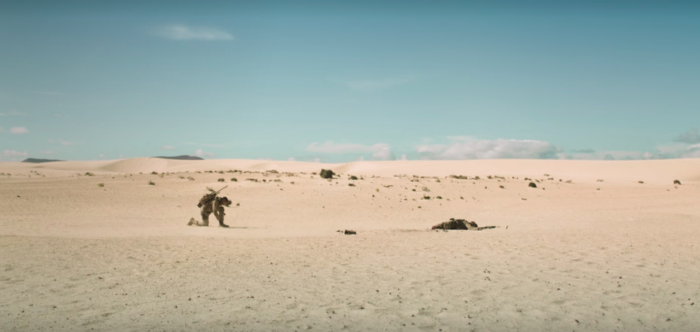
However, the real tragedy of Mine is how much potential it wastes in cliches. From the overly dramatic music to the flashbacks/hallucinations that beat a dead horse, the movie feels padded for time rather than gut-wrenching. Of course, we’re rooting for Stevens to survive this ordeal: he was abused as a child and has a pretty girlfriend waiting for him back home, maybe.
It’s completely understandable that a movie premised on one simple concept might lack enough steam to keep going for nearly two hours. Focusing the entire movie on Stevens, rather than cutting to HQ or Jenny or the Berber’s home life is also understandable from a cinematic perspective because it keeps the tension going. That is until it doesn’t. After a while, you may find yourself rooting for Stevens to survive only because you’ve already invested over an hour in watching him struggle.
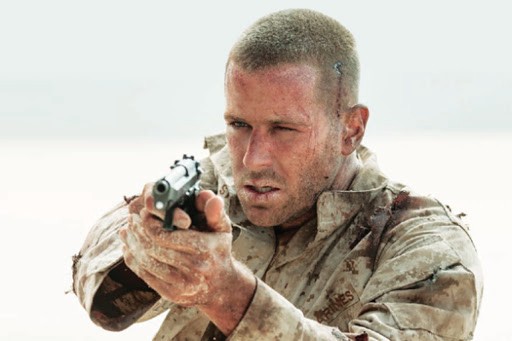
Unfortunately, Mine is probably not the Memorial Day movie you are looking for. While it does an excellent job of portraying the strength of a U.S. Marine in an unimaginable situation that would probably break a mere mortal, it lacks any kind of originality or creativity. All of the twists and turns are saved for Stevens’ external struggles; his internal struggles are rather run-of-the-mill. This is too bad because the filmmakers had an extraordinary opportunity with Mine to turn some of those tropes on their heads, or to at least raise the women and People of Color up from diversity trope Hell.

Movie Review originally published by Meredith Morgenstern on Medium
Related lists created by the same author
"Terrace House" improves on the standard reality TV format by affording its cast privacy, freedom, and respect.
Related Movie / TV / List / Topic
Adam Sandler goes hard as an NBA scout in this male-heavy sports-drama.